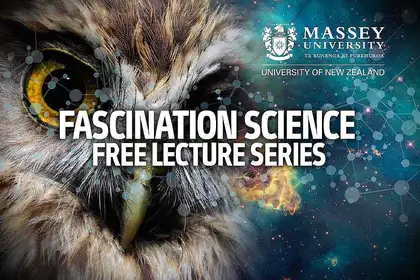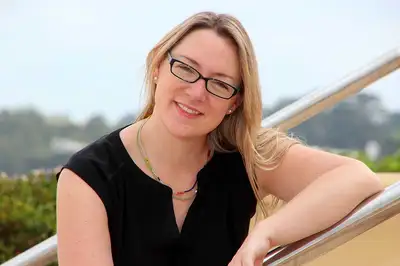
Dr Heather Hendrickson will explore where to next once the antibiotic-era comes to an end.
Antibiotics save countless lives every year, but like an ageing title-fighter, their punch weakens over time. A Massey University evolutionary biologist will speak to an Auckland audience about what we might do when the antibiotic-era comes to an end and who the next contender will be.
Returning from talks at BBC Future’s World Changing Ideas Summit in Australia and TedX Tauranga, Dr Heather Hendrickson, will share the wonders of scientific discovery in the third of a free lecture series held at the Massey University’s Albany campus.
The lecture, part of the ‘Fascination Science’ series, will explore the world below our feet – a world that may hold the key to fighting superbugs when all else has failed.
Dr Hendrickson looks to spread the message that the pre-antibiotic era is deadly, but not without hope.
“There are an increasing number of people around the world dying of antibiotic resistant infections and it is predicted by 2050 ten million people a year will die this way. The reason that this is happening is that bacteria are increasingly able to resist antibiotics, and it is happening quickly because every single use contributes, in a small way, to an increase in resistance, allowing bacteria to evolve.
“In the future, resistance and our misuse of antibiotics now, will cost human lives, but what if we were to use other weapons in the fight against superbugs?”
In her talk, Dr Hendrickson will outline the solutions and strategies that scientists are coming up with in order to fight dangerous bacterial infections in the future. At the forefront of these strategies is the idea of replacing antibiotics with bacteriophages.
“Bacteriophages are tiny viruses that are able to infect bacteria cells and destroy them. Where broad spectrum antibiotics is like treating your immune system with a nuclear bomb, wiping out the good with the bad, these phages are like ninjas that take out the specific pathogen that is making you ill.
“There are ten phages on the planet for every bacterial cell, so for my mind the numbers are on our side and there are literally billions of bacteriophages in every gram of soil below our feet, but the diversity is right now not very well known.
“They each have ways of destroying pathogens that we can’t even imagine yet. We have to find them, in order to use them.”

Dr Heather Hendrickson.
'Phage Hunters'
Dr Hendrickson is working with her students at Massey University and local schools to become what she calls ‘phage hunters’.
“We are able to take undergraduate students and local high school students and let them do soil sampling to find these bacteriophages – we have found over a dozen in the last two years.
Finding them is relatively simple and we’ve found ones that can infect bugs in cystic fibrosis and the kiwifruit pathogen PSA.
“By finding these phages we are hoping to find tools that might be useful for fighting infections sometime in the future.”
This involves working with local schools, like Long Bay College in Auckland, who discovered five phages in compost bins, fields, and gardens. They get to name these and some were: tika, dolorous and even pizza.
Lecture details
Antibiotic resistance: How did this happen and what will we do next?
Tuesday, February 28, 7.00-8.30pm, Sir Neil Waters Lecture Theatres, Massey University Auckland Campus, Albany.
For more information or to register to attend, go to http://massey.ac.nz/fascination-science
About Dr Hendrickson
Dr Hendrickson completed her PhD work studying Bacterial Evolution at the University of Pittsburgh. She was then awarded a prestigious Human Frontier of Science Program Long Term Fellowship to work with Professor David Sherratt at Oxford University. Today, Heather is a Senior Lecturer in Molecular Bioscience, Massey University. Her group works on how bacteria evolve with an eye towards understanding what innovations we can expect from them in the future.